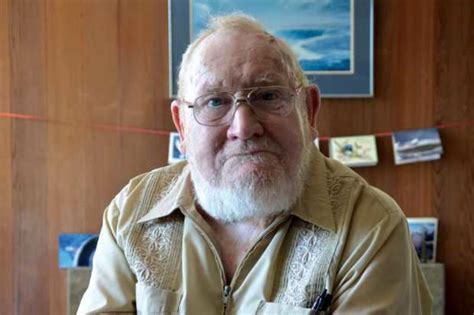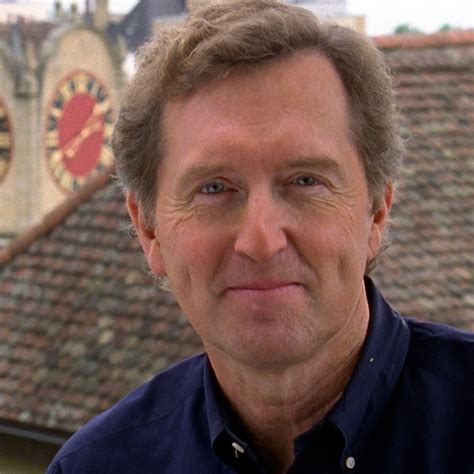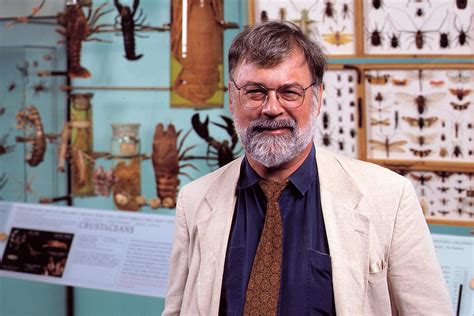A Quote by Neil deGrasse Tyson
Darwin's theory of evolution is a framework by which we understand the diversity of life on Earth. But there is no equation sitting there in Darwin's 'Origin of Species' that you apply and say, 'What is this species going to look like in 100 years or 1,000 years?' Biology isn't there yet with that kind of predictive precision.
Related Quotes
Much of the geographical work of the past hundred years... has either explicitly or implicitly taken its inspiration from biology, and in particular Darwin. Many of the original Darwinians, such as Hooker, Wallace, Huxley, Bates, and Darwin himself, were actively concerned with geographical exploration, and it was largely facts of geographical distribution in a spatial setting which provided Darwin with the germ of his theory.
The theory of natural selection is the centerpiece of The Origin of Species and of evolutionary theory. It is this theory that accounts for the adaptations of organisms, those innumerable features that so wonderfully equip them for survival and reproduction; it is this theory that accounts for the divergence of species from common ancestors and thus for the endless diversity of life. Natural selection is a simple concept, but it is perhaps the most important idea in biology.
Let's find and remedy all our weaknesses before our enemies get a chance to say a word. That is what Charles Darwin did. ...When Darwin completed the manuscript of his immortal book "The Origin Of Species" he realized that the publication of his revolutionary concept of creation would rock the intellectual and religious worlds. So he became his own critic and spent another 15 years checking his data, challenging his reasoning, and criticizing his conclusions.
Biology is a science of three dimensions. The first is the study of each species across all levels of biological organization, molecule to cell to organism to population to ecosystem. The second dimension is the diversity of all species in the biosphere. The third dimension is the history of each species in turn, comprising both its genetic evolution and the environmental change that drove the evolution. Biology, by growing in all three dimensions, is progressing toward unification and will continue to do so.
When I am at a dinner table, I love to ask everybody, 'How long do you think our species might last?' I've read that the average age of a species, of any species, is about two million years. Is it possible we can have an average life span as a species? And do you picture us two million years more or a million and a half years, or 5,000?
Alfred Russel Wallace, the codiscoverer of the theory of natural selection. Following their twin announcements of the theory in 1858, both Darwin and Wallace struggled like Laocoöns with the serpentine problem of human evolution and its encoiling difficulty of consciousness. But where Darwin clouded the problem with his own naivete, seeing only continuity in evolution, Wallace could not do so.
There are about 250,000 different species of fossil plants and animals known . . In spite of this large quantity of information, it is but a tiny fraction of the diversity that [according to the theory] actually lived in the past. There are well over a million species living today and . . [it is] possible to predict how many species ought to be in our fossil record. That number is at least 100 times the number we have found.
If it is true that an influx of doubt and uncertainty actually marks periods of healthy growth in a science, then evolutionary biology is flourishing today as it seldom has flourished in the past. For biologists collectively are less agreed upon the details of evolutionary mechanics than they were a scant decade ago. Superficially, it seems as if we know less about evolution than we did in 1959, the centennial year of Darwin's on the Origin of Species.
Paleontologists ever since Darwin have been searching (largely in vain) for the sequences of insensibly graded series of fossils that would stand as examples of the sort of wholesale transformation of species that Darwin envisioned as the natural product of the evolutionary process. Few saw any reason to demur - though it is a startling fact that ...most species remain recognizably themselves, virtually unchanged throughout their occurrence in geological sediments of various ages.
I read five books on the Constitution. My favorite was 'Plain, Honest Men' by Richard Beeman. I went on a science jag in the same way. I kept getting in arguments about evolution and being bested. So I read Charles Darwin's 'On the Origin of the Species,' a fantastic book that is not that difficult.
A Chinese paleontologist lectures around the world saying that recent fossil finds in his country are inconsistent with the Darwinian theory of evolution. His reason: The major animal groups appear abruptly in the rocks over a relatively short time, rather than evolving gradually from a common ancestor as Darwin's theory predicts. When this conclusion upsets American scientists, he wryly comments: "In China we can criticize Darwin but not the government. In America you can criticize the government but not Darwin."
Another curious aspect of the theory of evolution is that everybody thinks he understands it. I mean philosophers, social scientists, and so on. While in fact very few people understand it, actually, as it stands, even as it stood when Darwin expressed it, and even less as we now may be able to understand it in biology.


































